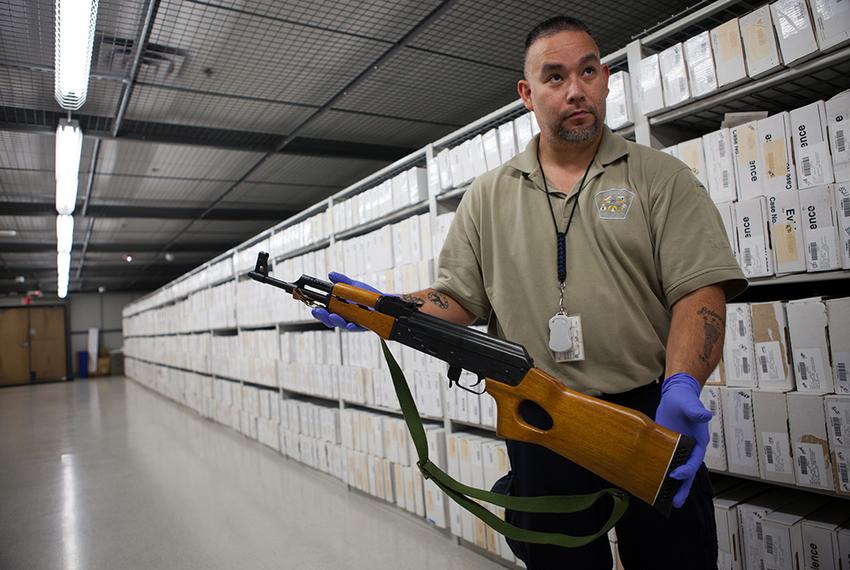The Importance of Choosing the Right Preschool
Choosing the right preschool for your child is a decision that will have long-lasting effects on their education and development. Preschool plays a crucial role in setting the foundation for lifelong learning, fostering social and emotional development, and promoting cognitive and intellectual growth.
- Setting the Foundation for Lifelong Learning
Preschool provides young children with the opportunity to develop the necessary skills and attitudes needed for future academic success. It helps them build a strong foundation in math, science, and language arts, as well as develop critical thinking, problem-solving, and communication skills.
By exposing children to a structured learning environment at an early age, preschool promotes a love for learning and helps them develop a positive attitude towards education. It also teaches them important skills such as listening, following instructions, and working independently, which are essential for their future academic endeavors.
- Fostering Social and Emotional Development
Preschool is not only about academics; it is also a place where children learn to interact with others and establish meaningful relationships. It provides them with opportunities to develop social skills, such as sharing, taking turns, and cooperating with their peers.
Through play and group activities, preschool helps children develop empathy, compassion, and respect for others. It teaches them how to express their emotions and manage conflicts in a healthy and constructive way. These social and emotional skills are crucial for their overall well-being and future success in life.
- Promoting Cognitive and Intellectual Growth
Preschool plays a vital role in stimulating children’s cognitive and intellectual development. It provides them with a rich and stimulating learning environment that encourages exploration, curiosity, and creativity.
Preschool activities, such as puzzles, art, and pretend play, help children develop their problem-solving, critical thinking, and imagination skills. They also expose children to a wide range of subjects, from science to music, which helps broaden their knowledge and interests.
Furthermore, preschool programs often incorporate early literacy and numeracy activities, laying the foundation for future academic success. Children learn to recognize letters, write their names, count, and develop basic math concepts. These early academic skills are crucial for later educational achievements.
Factors to Consider When Selecting a Preschool
When selecting a preschool placement for your child, there are several important factors to consider. These factors will ensure that you choose a preschool that meets your child’s needs and provides them with the best learning and developmental opportunities.
- Location and Accessibility
The location of the preschool is an essential factor to consider. It should be conveniently located near your home or workplace, making drop-off and pick-up easier. An accessible location will save you time and reduce the stress of commuting with your child.
Additionally, consider the safety of the preschool’s location. Is it in a secure neighborhood? Does it have proper safety measures in place, such as fenced play areas and a secure entrance? Ensuring the safety and security of your child should be a top priority.
- Teaching Philosophy and Curriculum
Understanding the teaching philosophy and curriculum of a preschool is crucial in ensuring it aligns with your educational values and goals. Each preschool may have a unique approach to education, such as Montessori, Reggio Emilia, or Waldorf.
Research the different teaching philosophies and determine which one resonates with your beliefs about early childhood education. Consider what you value in education, whether it’s independence and creativity, collaborative learning, or the integration of arts and nature.
Look for a curriculum that is well-rounded and comprehensive, covering not only academic subjects but also social-emotional development and physical activities. A good preschool curriculum should provide a balance between structured learning and play, allowing children to explore and discover at their own pace.
- Teacher-Student Ratio and Qualifications
The teacher-student ratio and qualifications of the preschool staff are important factors that can impact the quality of education and care your child receives. A lower teacher-student ratio allows for more individualized attention and better supervision.
Inquire about the qualifications and experience of the teachers and staff. Are they trained in early childhood education? Do they have certifications or degrees in the field? Experienced and knowledgeable teachers are more likely to provide a stimulating and supportive learning environment for your child.
Additionally, observe how the teachers interact with the children during your visit. Do they engage with the children in a positive and nurturing way? Are they attentive and responsive to their needs? The quality of the teacher-child relationship is crucial in fostering a love for learning and overall emotional well-being.
Exploring Different Types of Preschool Programs
There are several different types of preschool programs available, each with its unique approach to early childhood education. Understanding the different types can help you determine which program best suits your child’s needs and preferences.
- Montessori Education: Nurturing Independence and Creativity
Montessori education is based on the philosophy developed by Maria Montessori, which emphasizes independence, self-directed learning, and hands-on exploration. Montessori classrooms are designed to foster independence and allow children to choose their activities and work at their own pace.
In a Montessori program, children are given freedom within limits and are encouraged to explore various materials and learning tools. The focus is on developing the whole child, including their physical, emotional, social, and cognitive development.
- Reggio Emilia Approach: Emphasizing Collaborative Learning
The Reggio Emilia approach to early childhood education emphasizes experiential and collaborative learning. It values the child’s natural curiosity and encourages them to take an active role in their education.
In a Reggio Emilia program, projects and activities are often based on the interests and ideas of the children. Teachers act as facilitators, guiding and supporting the children as they explore and investigate various topics. The approach also emphasizes the use of art and creativity as vehicles for learning.
- Waldorf Education: Integrating Arts and Nature
Waldorf education focuses on fostering imagination, creativity, and a connection to nature. It aims to provide a holistic education that addresses the intellectual, artistic, physical, and emotional aspects of a child’s development.
In a Waldorf program, the curriculum places a strong emphasis on the arts, such as music, painting, and storytelling. The learning environment is designed to be warm and nurturing, with an emphasis on rhythm and routine.
Tips for Visiting and Evaluating Potential Preschools
Visiting and evaluating potential preschools is an essential step in finding the perfect fit for your child. Here are some tips to make the most out of your visits and ensure you gather the necessary information to make an informed decision.
- Observing Classroom Environment and Resources
During your visit, pay attention to the classroom environment and available resources. Is the classroom clean, organized, and inviting? Look for age-appropriate toys, books, and learning materials that stimulate curiosity and creativity.
Observe how the classroom is arranged. Are there different areas designated for different types of activities, such as reading, art, and pretend play? A well-organized and diverse learning environment provides children with opportunities for exploration and engagement.
- Interacting with Teachers and Staff
Take the time to interact with the teachers and staff during your visit. Ask them questions about their teaching philosophy, approach to discipline, and how they handle individual differences among children.
Observe how the teachers interact with the children. Do they show genuine interest and enthusiasm? Are they patient and understanding? The teacher’s attitude and demeanor are crucial in creating a positive and supportive learning environment.
- Engaging with Current Parents and Checking References
Speak to current parents at the preschool to get their perspective on the program. Ask them about their experiences, what they like about the preschool, and any concerns they may have. Their insights can provide valuable information and help you gauge the overall satisfaction of the parents.
Additionally, don’t hesitate to ask the preschool for references or testimonials from previous parents. Contacting these references can give you a more in-depth understanding of the preschool’s strengths and weaknesses. It’s important to gather as much information as possible to make an informed decision.
Choosing the perfect preschool for your child requires careful consideration and research. By understanding the importance of preschool, factors to consider when selecting one, exploring different types of programs, and visiting potential schools, you can ensure that your child receives the best possible education and development opportunities.
FAQ
Question: How can preschool set the foundation for lifelong learning? Answer: Preschool provides young children with the opportunity to develop necessary skills and attitudes needed for future academic success. It helps them build a strong foundation in math, science, language arts, critical thinking, problem-solving, and communication skills.
Question: What social and emotional development benefits can preschool provide? Answer: Preschool is a place where children learn to interact with others and establish meaningful relationships. It provides them with opportunities to develop social skills such as sharing, taking turns, and cooperating with their peers. Through play and group activities, preschool helps children develop empathy, compassion, and respect for others. It also teaches them how to express their emotions and manage conflicts in a healthy and constructive way.
Question: How does preschool promote cognitive and intellectual growth? Answer: Preschool stimulates children’s cognitive and intellectual development by providing them with a rich and stimulating learning environment. It encourages exploration, curiosity, and creativity through activities such as puzzles, art, and pretend play. Preschool programs often incorporate early literacy and numeracy activities, laying the foundation for future academic success. Children learn to recognize letters, write their names, count, and develop basic math concepts.
Question: What factors should I consider when selecting a preschool? Answer: When selecting a preschool, important factors to consider include location and accessibility, teaching philosophy and curriculum, and teacher-student ratio and qualifications. The preschool should be conveniently located near your home or workplace. Its teaching philosophy and curriculum should align with your educational values and goals. The teacher-student ratio should allow for individualized attention, and the staff should be qualified and experienced in early childhood education.
Question: What are the different types of preschool programs? Answer: Preschool programs can include Montessori, Reggio Emilia, and Waldorf. Montessori education emphasizes independence, self-directed learning, and hands-on exploration. Reggio Emilia focuses on experiential and collaborative learning, valuing the child’s natural curiosity. Waldorf education integrates arts and nature, fostering imagination, creativity, and a connection to the natural world.
Question: How can I evaluate potential preschools? Answer: When visiting and evaluating potential preschools, observe the classroom environment and available resources. Interact with the teachers and staff to understand their teaching philosophy and approach to discipline. Engage with current parents to gather their perspective on the program. Additionally, ask the preschool for references or testimonials from previous parents to gain a deeper understanding of the preschool’s strengths and weaknesses.
Question: Why is it important to choose the right preschool for my child? Answer: Choosing the right preschool is crucial for your child’s education and development. Preschool sets the foundation for lifelong learning, social and emotional development, and cognitive and intellectual growth. By selecting a preschool that meets your child’s needs, you can provide them with the best learning and developmental opportunities.
Question: What are the benefits of a well-rounded preschool curriculum? Answer: A well-rounded preschool curriculum covers not only academic subjects but also social-emotional development and physical activities. It provides a balance between structured learning and play, allowing children to explore and discover at their own pace. This type of curriculum helps children develop a love for learning, fosters creativity, and broadens their knowledge and interests.













